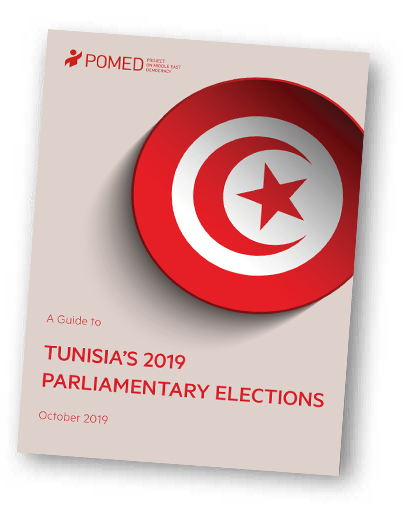This Sunday, October 6, Tunisians will cast ballots in their country’s second free and pluralistic parliamentary elections since the 2011 revolution, choosing the 217 members of the Assembly of the Representatives of the People (ARP) for a new five-year term. More than 1,500 electoral lists are competing in 33 electoral districts in Tunisia and abroad. The ARP vote comes just three weeks after the first round of the presidential election, which saw voters rebuke many members of the current ruling elite and send to the October 13 runoff two newcomers to electoral politics—constitutional law professor Qaïs Saïed and media mogul Nabil Karoui (who has been imprisoned since August on charges of money laundering and tax evasion but remains on the ballot). Against a backdrop of challenges to the status quo and widespread economic and political disaffection, the October 6 ARP contest may produce further shifts in Tunisia’s post-2011 landscape.
To provide background, POMED is pleased to publish “A Guide to Tunisia’s 2019 Parliamentary Elections.” The guide, written by POMED staff, discusses the political context for the October 6 vote; outlines the electoral system, timetable, and other aspects of the process; and describes some of the most prominent parties and coalitions in the race.
Table of Contents









|
Consolidating Power: Tunisian President Kais Saied’s Crackdown on the Judiciary